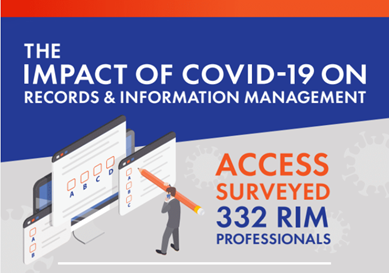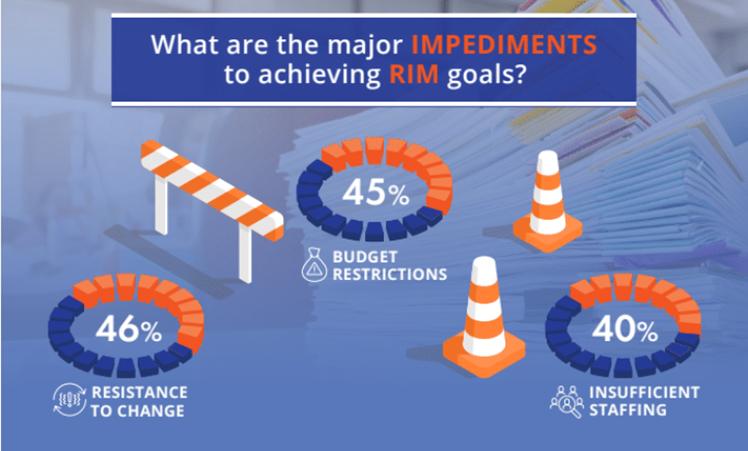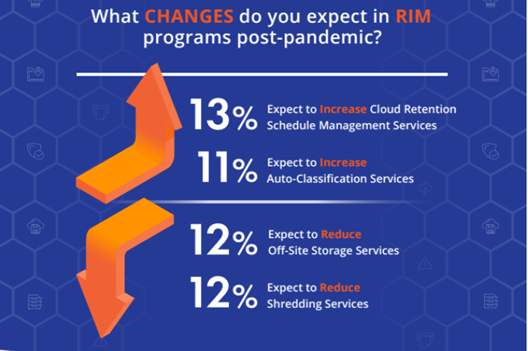
Since the start of the pandemic, most companies around the world have had to quickly pivot to meet evolving client needs.
They’ve also needed to shift employees to hybrid and remote work models.
As a result, it’s no surprise that digitization has become a key business priority to help enable and expedite convenient information access across the business.
However, other changes in records and information management (RIM) are also inevitable as employees require remote access to documentation. And ease of access to records and information security are at the top of the RIM priority list in the current era.
Budget and staffing restrictions, along with overcoming resistance to change, are also important concerns as companies adjust to the new normal.
Understanding the Impact
To understand the extent of how all of these changes have affected the industry, Access invited RIM professionals, including ARMA members, to participate in a survey. The survey answers helped us better understand and/or validate emerging trends, and the industry’s challenges, priorities, and expected future changes. 332 RIM professionals responded to the survey, covering a broad spectrum of job roles and responsibilities across many RIM topics.
The following graphic breaks down the specific results that survey responders indicated were the top records and information management challenges over the next 12-24 months:
The next take-away is highlighted in the following graphic. It highlights what the survey responders felt were the major impediments to achieving RIM goals. It is plain to see that responses were pretty evenly divided between ‘Resistance to Change’ and ‘Budget Restrictions’… although ‘Insufficient Staffing’ was a close third hurdle.
And finally, the third interesting take-away from the report was that survey responders are expecting that certain changes in RIM programs will happen in a post-pandemic world. Those top ranked expected changes are detailed in the following image:
Outsourced Managed Services
In addition to covering the top information management challenges, impediments to achieving information management goals, and expected RIM program changes in a pre- and post-pandemic world, the survey also explored the idea of leveraging outsourced managed services as a smart and viable option in the ‘new normal’.
The fact is, companies willing to outsource all the physical components of their RIM programs to managed services experts will accelerate their digital transformation process. Managed services remains a great option because it enables businesses to mitigate resistance to digitizing records, is a cost-effective solution to supporting hybrid work environments, and helps companies become more efficient and productive. By outsourcing administrative tasks, staff are empowered to focus on higher value tasks and this, of course, enables quicker success for all.
Summary
In summary, the survey results indicate that change is afoot in the traditionally slow-changing world of physical records and information management. The global pandemic appears to be the catalyst that will finally push companies to implement changes that will help them achieve the digital transformation goals they identified over a decade ago.
To read the survey report and analysis in full, download it here: What the Pandemic Taught Us About RIM Managed Services








